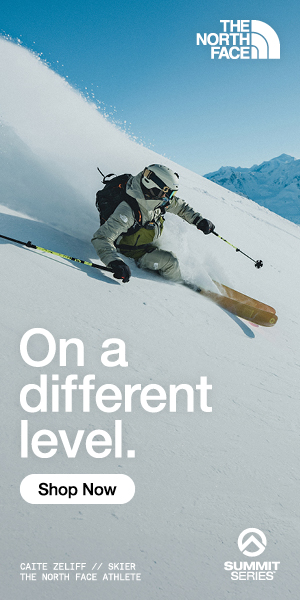When 2021 lockdowns came to the Snowy Mountains, staff and locals headed to the hills for their allotted exercise. Although the resort lifts lay silent, the backcountry was pumping.
It was a strange time to be a backcountry guide. I saw many people excitedly take up the sport and embrace the “earn your turns” ethos, but there was some questionable behaviour like leaving jumps and rails in frequented backcountry zones, rubbish strewn in fragile ecosystems, loud music and poor backcountry etiquette.
To help us all be excellent to each other this winter, here’s a run down of some backcountry best practices.
Pre-backcountry tour
Plan and communicate
Backcountry touring is a team sport. Proper communication with your team means everyone gets a say in the decision making. It’s worth having a message group, a phone call or in-person chat the day before your tour so everyone is clear on who’s coming, where you’re going, goals for the day, and who has what group gear (Personal Locator Beacon, shelter, repair kit, first aid etc). Check the weather and conditions report as a team, see how everyone is feeling and make a plan.
Prepare to leave no trace in the backcountry
Protecting the environment requires pre-planning. Pack a dry bag or zip lock bag for rubbish, bring reusable containers for food, try to carpool and prep a method to take your human waste out with you! Hint: dry bags or poo tubes are your friend.
Bring your damn avi gear
It’s weirdly common in Australia for people to not bring their avalanche gear (shovel, beacon, probe). Yet avalanches absolutely happen here and no equipment is bad news for yourself and for everyone that you can’t save in an avalanche! Bringing your avi gear (and knowing how to use it) every time is also great habit building for going overseas to Japan or Canada. Trust me, no one will want to play with you if you don’t carry your avalanche gear overseas.
Emergency plan
Statistically, most backcountry rescues in Australia are from people getting lost, getting caught out by weather and suffering from hypothermia. So mitigate the risk before you go – check the weather and backcountry conditions and have an emergency plan. Make sure everyone knows your plan – where you’ll shelter, what route you’ll return by, who you’ll call in an emergency. Purely relying on Search and Rescue is a bit of a dick move. Remember that you can pick up a PLB (personal locator beacon) from National Parks for FREE. Filling out a Trip Intention Form and downloading the Emergency Plus app are also smart moves.
Respect Traditional Custodians
When I guide backcountry tours in the Main Range of NSW, I always like to give an Acknowledgment of Country before I begin. While you don’t have to do this on your personal tours, it’s worth taking a moment to think about the Traditional Custodians of the mountains we all love. Treat the area with respect and remember that Ngarigo and other Aboriginal groups have been walking through these mountains for thousands of years.
Mid-backcountry tour

Skin track etiquette
It’s best practice to use established skin tracks. If you are boot packing or snow shoeing please keep off the skin track as big holes ruin knees and skin traction! If someone is coming up the track behind you, step off to the side. And try not to skin where you or others want to ride.
Breaking backcountry trail
If it’s a deep snow day, going first or ‘breaking trail’ uses more energy. Support your mates and take it in turns. This is a great habit to get into if you’re heading overseas.
Dropping in
When it’s time to ride, avoid dropping in above another group that is skinning or have come to a stop after riding. You could set off an avalanche on them or drop some ice onto them. Rude.
Spacing out
There’s plenty of space out there in the backcountry so use it! On the skin track up, no one wants a tailgater. When you’re riding, give other groups space and allow gaps between team members. Riding one at a time is standard backcountry protocol, unless the terrain is super safe.
Safe stopping in the backcountry
When it comes time to pause, try to stop out of avalanche terrain, away from cornices and not on roll overs or around corners. High safe points far enough away from an avalanche run out is best.

Communication is key
You don’t win friends by ignoring them. Regularly see how everyone is feeling, if they want to change plans or have a break. There is always going to be one person who is slower, more hesitant or less fit. They’re part of the group and deserve a say. Don’t ruin their day just because you have a certain objective in mind! A change of plan is always an option – do you need to head back early, is the weather turning? Has the snow changed, are people tired or in dire need of a beer? Check in and you’ll win backcountry brownie points.
Respect backcountry flora and fauna
The Australian backcountry is a fragile ecosystem home to many endemic species, and plenty of endangered ones too. Remember that there’s a whole ecosystem under the snow of sleeping mountain pygmy possums, mountain galaxia fish swimming, alpine crayfish snapping and beautiful plants. Tread lightly and carefully.
For example, Australia’s entire population of feldmark grass exists on a windswept ridgeline between Mt Northcote and Mt Lee. Try not to step on it! When spring comes, kindly avoid trampling the lime green sphagnum moss that provides a great habitat for our native frog population.
Music, drinks and parties
Wilderness areas are generally for quiet enjoyment and getting back to nature. Respect everyone’s right to quiet enjoyment and keep the parties and loud music to a minimum.
Leave no trace
Remember – don’t leave your poop in the backcountry! It’s a tricky topic but one worth having. In alpine parks, you need to carry out your human waste with you as it won’t decompose. The same goes for food, so pack out everything that you take with you.
Post-backcountry tour

Debrief
Maybe you just had the best backcountry day every – or maybe you didn’t. It’s worth checking in with your crew and discussing what went well and what could be done better. This can absolutely be done at the pub.
Social media
Be cautious of geo-tagging in sensitive areas, be a role model and show yourself doing the right thing out there! Let’s continue to be excellent to one another.
Read more backcountry features here.


































